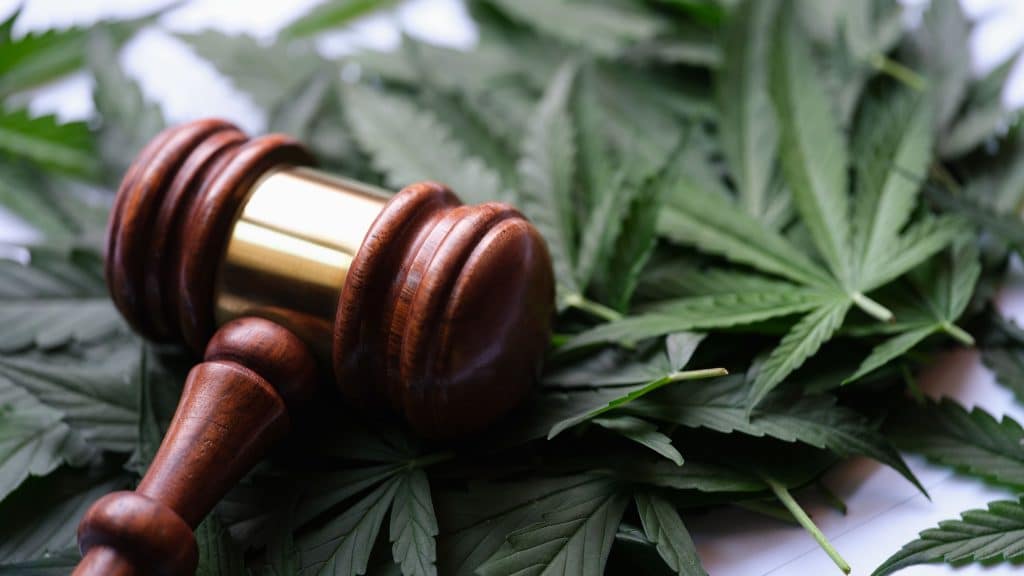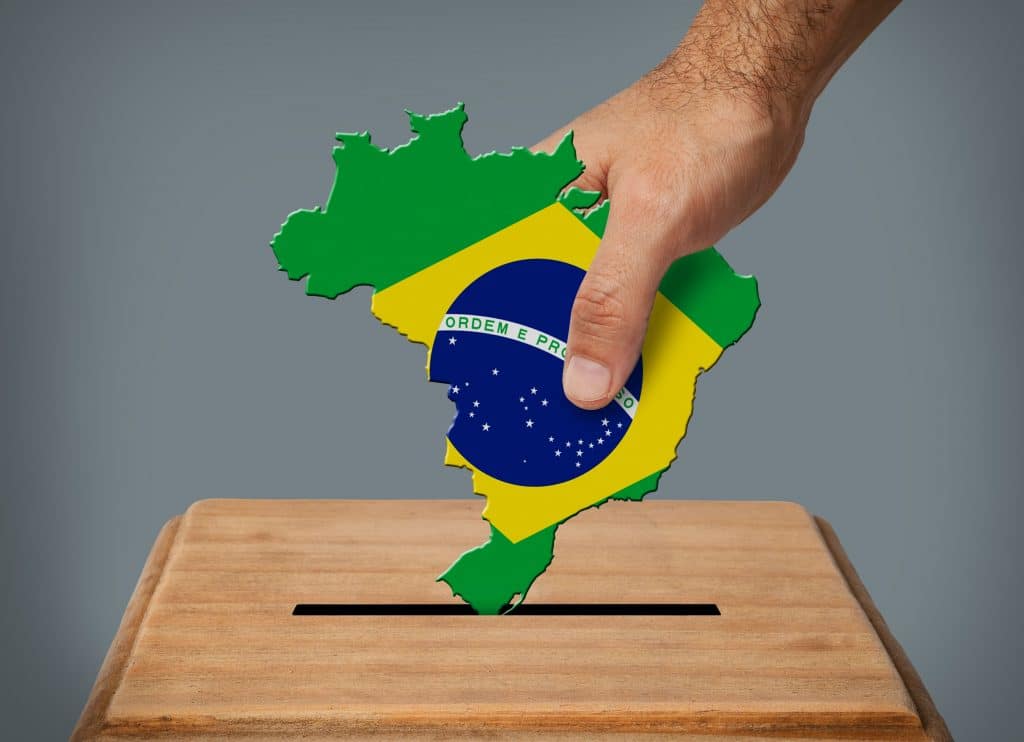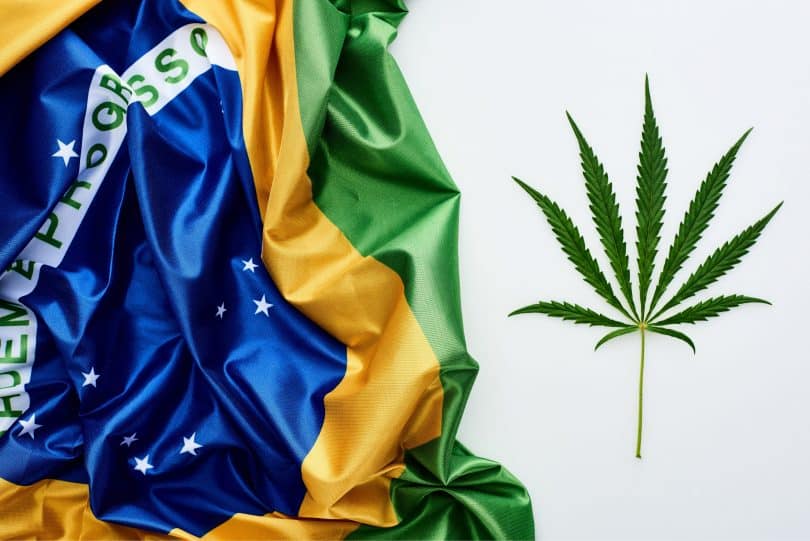While not every region of the world is onboard yet, many countries are taking advantage of changing opinions toward cannabis, to change legislation for use; as well as start production industries. One of the interesting countries to watch, is Brazil; as it becomes a new cannabis startup capital of the world.
A bit about Brazil
Before getting into how Brazil has a huge cannabis startup market, let’s first take a look at the country, and its general weed laws. The Federal Republic of Brazil sits in South America, and takes up most of the land space of that region, covering 3,300,000 square miles (or 8.5 million square kilometers).
It has a population of around 215 million making it easily the most populous country in Latin America, and either the 5th or 6th largest country in the world, depending on your source. It’s on the east side of the land mass, and borders from north to south (on its north and west sides): Surinam, Guyana, Venezuela, Colombia, Peru, Bolivia, Paraguay, Argentina, and Uruguay. To the east is the Atlantic Ocean.
Unlike the majority of the rest of South America, the national language is Portuguese, not Spanish. The country is classified as both an emerging power and developing country. It has the 12th largest GDP in the world, and the 9th in terms of purchasing power parity. It holds the biggest economy in Latin America.
Cool to have you with us. Check out and subscribe to the Cannadelics Weekly Newsletter for email updates; and promotions for cannabis buds, vapes and other equipment, edibles, smoking devices, cannabinoid compounds, and a ridiculous amount more. We’ve got the good stuff; come over and get it!
Cannabis in Brazil
When it comes to cannabis, the plant is illegal for recreational use, but was decriminalized for the possession of small amounts for personal use in 2006. In terms of repercussions, the sale, transport, and trafficking of any drug is a criminal offense, which comes with a prison term of 5-15 years, and fines. Use crimes incur educational support, community service, and for some lucky users, just a warning.
In 2015, medical cannabis was legalized in the country with a .2% THC cap for most ailments. It does allow for terminally ill patients without other recourse to receive medications with more than .2% THC. When the legalization first occurred, medications could only be imported into the country. In 2019, this changed, although not completely.
The 2019 update did a couple things. For one, it allowed pharmacy sales of cannabis medications. Second, it opened up legality for production of the drugs in Brazil, rather than relying on imports. In order to get a license for these activities, companies are required to obtain a Certificate of Good Manufacturing Practice, which is given out by ANVISA (Brazilian National Agency for Sanitary Surveillance.) CBD also requires a prescription in Brazil, with use strictly controlled by ANVISA.
What the law didn’t legalize in 2019, was the cultivation of the plant. Though manufacturing products became legal, it only went as far as manufacturing, which means all raw materials still require import. So while this opened the market further, and made drugs a bit more accessible; it still rules out a vertical market, since domestic cultivation wasn’t legalized on any level.
Brazil as the cannabis startup capital
Even without a formal cultivation market, the cannabis industry in Brazil skyrocketed out in the last couple years. It’s expected that only about 41,000 of the current population (over 200 million), uses medical cannabis. This means there’s plenty of room to grow; however it seems the sales market is taking off regardless of use numbers.
According to the LatAm Report 2022 via Prohibition Partners, there were over 75,000 instances of medical cannabis imports in 2021 alone, which was up 39% from the previous year. What’s happening to it all? Well, these imports, along with domestic production, are fueling a growing startup industry that covers tons of bases related to cannabis.

Brazilian data company Kaya Mind, reported that when 2022 started, there were 285 companies in the cannabis space, 136 of which register as startup companies. What are they dealing with? Some are geared toward importation of products, and distribution, and marketing. But others are niche industries built to cater to niche issues.
Some of the interesting additions include banking startups like Cannapag; veterinary products companies such as Dr. VetCannabis; advocacy services including Rede Reforma; genetics organizations like Adwa; educational companies including CEC; food and beverage manufacturers such as Blue Hemp; cosmetics providers including CBeDifferent; and even cultivation equipment companies like Edroponic.
Whereas it used to be company founders making the biggest investments in their own companies, this has changed in the last year. Now companies are picking up large amounts of funding early on from outside investors.
How is it all regulated?
It’s not. Often when a law passes, such as a legalization, it does so without all (or sometimes any) specifics in place. This is the case here. Production of cannabis products was opened to Brazil, but without regulation to really run the industry. That regulation has, in fact, been argued over since 2020.
The law in question is called Bill 399/2015. Originating in the summer of 2020, the bill seeks to legalize cultivation of cannabis within Brazil, along with regulation for the production industry. The original bill was put forth by Deputy Paulo Teixeira to the Chamber of Deputies, with provisions for domestic cultivation; meant to lower import costs and the overall cost of medications.
In the summer of 2021, the bill passed the Special Committee of the Chamber of Deputies, and by then included provisions for uses in the regular medical world, as well as veterinary, and industrial uses, along with general cultivation. This passage unfortunately only signaled part of the journey, as after this, it was sent to the Senate. The bill is still in motion.

Though it hasn’t passed yet, a couple other things happened to change the landscape in the past year. The first was a Superior Court of Justice ruling in the case of three medical cannabis patients who wanted to grow cannabis to extract the oil for pain control. All five judges on the panel voted unanimously that this action was okay. Medical cultivation isn’t technically legal in the country. Since there isn’t existing regulation, its expected this ruling will be used in other similar cases until there is. But it also means those cultivating now without a ruling, do risk arrest and prosecution.
Said Judge Rogério Schietti, “The discourse against this possibility is moralistic. It often has a religious nature, based on dogmas, on false truths, stigmas. Let us stop this prejudice, this moralism that delays the development of this issue at the legislative, and many times clouds the minds of Brazilian judges.”
Recent backward movement?
Of course, this goes in contrast to then – president Jair Bolsonaro, who stated the previous year that he was against any authorization for the personal cultivation of cannabis. And while Bolsonaro was voted out last October, he attempted some damage in the interim time between the initial election on October 2nd, and the runoff on October 30th. Although, technically, it wasn’t Bolsonaro that did it.
On October 8th, the Federal Council of Medicine (CFM) put out a resolution. The CFM is another regulating body which is capable of revoking cannabis licensing, and which can decide what ailments receive cannabis treatments. In this interim time, the agency started stripping patients of their prescriptions, and limiting the conditions that cannabis can treat. It also banned doctor’s from giving relevant lectures on the topic; which is a very dictatorial move. To give an idea of the mentality of the action, no medical information subsequent to 2015 was used by the CFM to make this decree.
The public, however, was uncool with this, as expected. Uncool enough to stop it in its tracks. And considering the timing, they should have been, as it looks quite likely that Bolsonaro was behind it. Perhaps in a last bid effort to have his way, as the public voted him out.
Luckily, the president did change over. And it changed to Luiz Inácio da Silva, who is left-wing, and pro-cannabis; making it unlikely that such a decree could remain, and much more likely that Bill 399/2015 (or an equivalent) will eventually go through. Understandably, with everything up in the air at the moment, there hasn’t been an update on bill progress, other than that it awaits an appeal to get sent to the Senate.

Conclusion
With Bolsonaro out of office, and da Silva in office, it’s not probable that cannabis policy will slide back further; and we should expect the same forward progression as before. Eventually, some form of regulation will come out. For now, Brazil stands in an interesting place with its cannabis startup nation; which without regulation, is taking its own form.
Welcome one and all! Thanks for finding us at Cannadelics.com; a news site that caters to the growing cannabis and psychedelics industries. Join us whenever possible to keep up with everything going on, and check out the Cannadelics Weekly Newsletter, so you’re never late to get a story.









